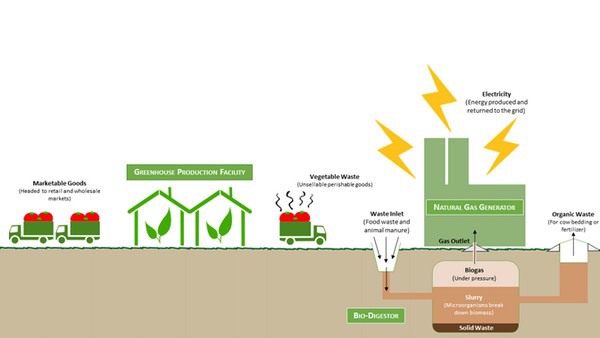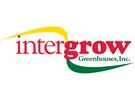Consumers have high expectations when it comes to their food. Even in produce, they expect beautifully uniformed, well presenting fruit. But at the end of the day this is farming and it is not realistic that every piece of fruit produced meets those requirements. Even with the strictest growing and packing practices, there will always be some produce that just won’t make the cut and is unsalable due to punctures, splits or other defects.
“On any given week we could have several tons of waste tomatoes that just haven’t made the cut”, says Marketing and Product Development Manager, James Williams. “At the end of the day it’s a necessary cost of doing business in this industry, as it is our job to meet our customers expectations. But it is still sad to have all of that hard work and energy dumped out on the field to rot.”
In order to recover some of that energy Intergrow will be partnering with Natural Upcycling of Linwood, NY to collect and recycle that waste with a bio-digestor, producing electricity and sanitized organic solids. Using microbial cultures to decompose the tomatoes in a specialized chamber, natural gases will be released, collected and burned in a generator creating energy. Out in the field the decomposing process may take several weeks to months, releasing odors, heat and CO2. This more controlled system enables the capture of the valuable resources locked away in this otherwise unwanted material.

The Bio-Digesting process
“We are excited to be a part of what Natural Upcycling is trying to accomplish here. We have taken a lot of steps as an organization to be on the forefront of sustainability. Collecting rainwater, recycling irrigation water, our combined heat and power system and precision fertilizer practices are all really exciting. This is a big step further!” exclaims Williams.
“Not only are we putting this waste to good use, but it’s now producing electricity that is theoretically coming back to light the greenhouse. Putting us one step closer to a fully integrated, self-sustaining system! To my knowledge this isn’t being done anywhere else right now!” Another added benefit of this new partnership; by completely removing this waste from their sites Intergrow is greatly reducing any potential pest or disease pressure that could harbor in this material. “This move really is a no-brainer from our perspective!” says Williams.
Harry Cohen, Co-Founder of Natural upcycling commented, “We are pleased to add Intergrow as a new customer! Our company’s mission is to help sustainably minded organizations such as Intergrow reduce their carbon footprint and minimize or reduce anything from going to a landfill.” Natural Upcycling works with several other partners throughout the East Coast, recycling over 80,000 tons per year of food scraps or organics.
For more information: Intergrow Greenhouses
Intergrow Greenhouses
james.williams@intergrowgreenhouses.com
www.intergrowgreenhouses.com
